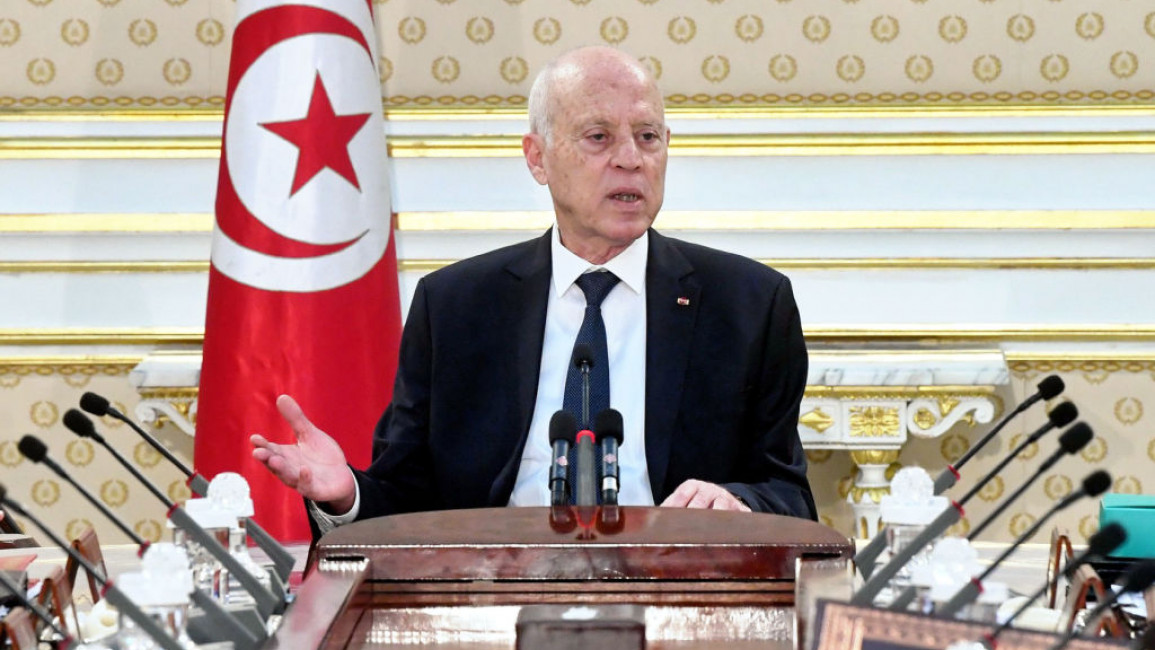Tunisia Saied claims 'Zionist influence' behind naming of Libya's Storm Daniel
Tunisia President Kais Saied has claimed that naming the devastating storm that struck Libya last week as "Daniel" is "evidence" of Zionism's growing influence.
Late on Monday, 18 September, Tunisia's Presidency's official page shared an hour-long video of President Saied's meeting with Prime Minister Ahmed Al-Hashani and Ministers of Interior Justice and Finance.
During the meeting, the President ranted over twenty minutes about the "ridicule" accusation of racism and antisemitism he had faced in the last months, slamming the media for biased reporting.
"Did they not wonder about the naming? Daniel is a Hebrew prophet," Saied said during the meeting.
"The Zionist movement has penetrated to attack the mind and thinking, from Daniel to Abraham," he added.
Storm Daniel, the deadliest Mediterranean storm ever recorded, was named by the Hellenic National Meteorological Service in Greece, where it was first developed. For decades, storms and hurricanes have been named in male and female names in alphabetic order.
For #Tunisia's Kais Saied, naming the hurricane that struck #Derna "Daniel" is an "evidence of #zionism's "growing influence." pic.twitter.com/TEHt9ryUVL
— Bassam Bounenni بسام بونني (@bbounenni) September 18, 2023
Often labelled an antisemite, Saied's latest statement triggered wide criticism against the populist leader, who has shown an affinity for conspiracy theories since his election in 2019.
"This is the guy whom the European Union just cut a deal with to stop migration. Apparently, anyone can be embraced, even an antisemite, if he will block migrants heading for Europe," wrote Kenneth Roth, former director of Human Rights Watch, on the X platform, formerly known as Twitter.
"He already showed his racism against Black African migrants," added Roth.
In February, President Saied alleged that "hordes" of illegal black migrants were causing crime and posing a demographic threat to the North African country, echoing the ideas of the far-right conspiracy theory of "Great Replacement."
Since President Kais Saied's "incendiary" speech, racial tensions and xenophobic attacks flared in Tunisia. Many commentators flagged that Saied's recent statement might incite hate crimes against Tunisian Jews.
There are an estimated 1,500 Jews in Tunisia, mainly on the island of Djerba.
On 9 May, two worshippers and three security officers were killed in a gun attack near Africa's oldest synagogue, on the island of Djerba.
At the time, President Saied denied that the attack was antisemitic. Authorities sought to downplay its significance in a statement lacking transparency.
"They speak of antisemitism while the Jews were protected here," he said on 19 May about the German-Italian occupation of Tunisia during the Second World War, from November 1942 to May 1943.
He also criticised what he called double standards in international reactions, which he said talk of an antisemitic attack while "Palestinians are killed every day and no one talks about them". He did not articulate further the link between these two events.



